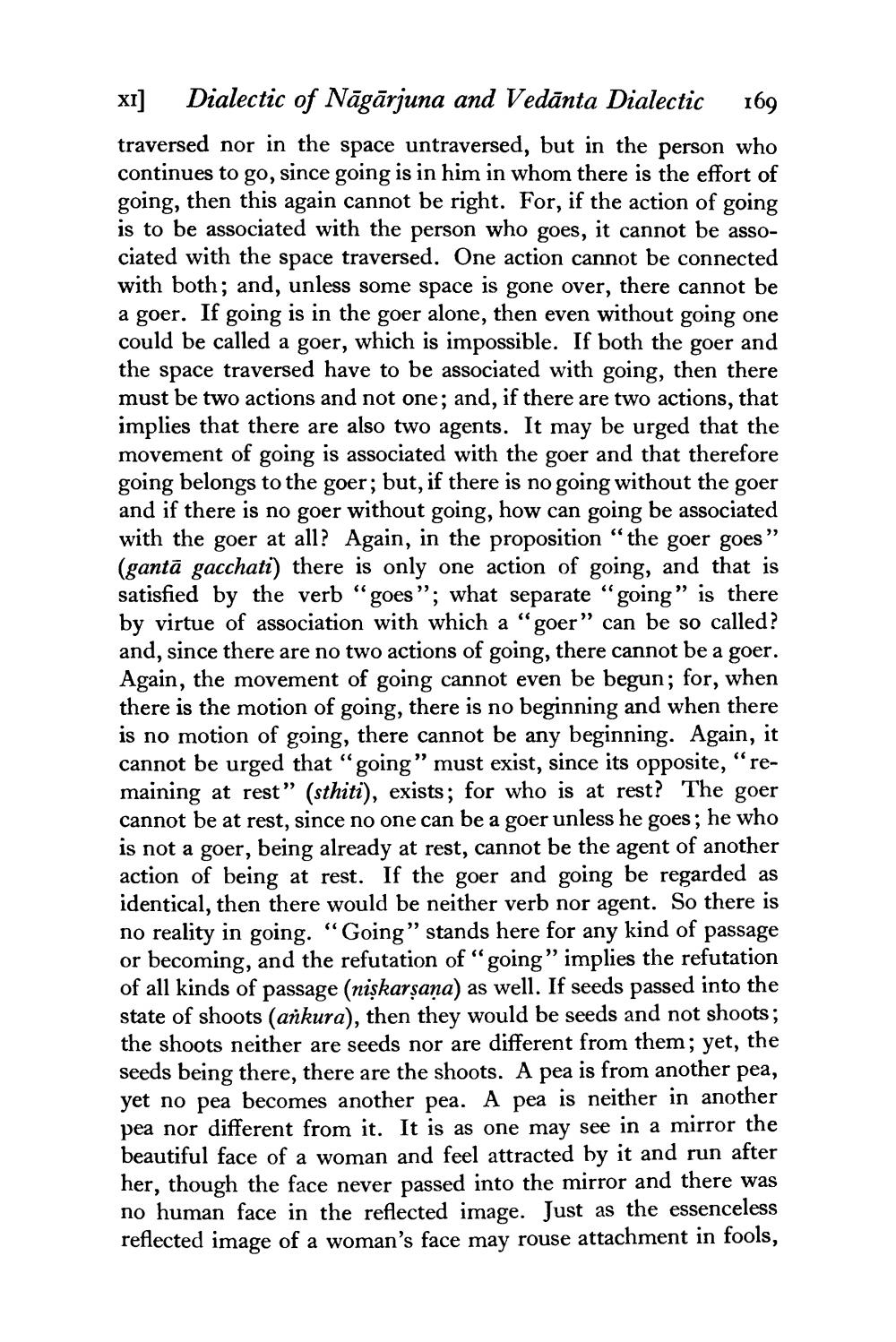________________
X1] Dialectic of Nāgārjuna and Vedānta Dialectic 169 traversed nor in the space untraversed, but in the person who continues to go, since going is in him in whom there is the effort of going, then this again cannot be right. For, if the action of going is to be associated with the person who goes, it cannot be associated with the space traversed. One action cannot be connected with both; and, unless some space is gone over, there cannot be a goer. If going is in the goer alone, then even without going one could be called a goer, which is impossible. If both the goer and the space traversed have to be associated with going, then there must be two actions and not one; and, if there are two actions, that implies that there are also two agents. It may be urged that the movement of going is associated with the goer and that therefore going belongs to the goer; but, if there is no going without the goer and if there is no goer without going, how can going be associated with the goer at all? Again, in the proposition "the goer goes” (gantā gacchati) there is only one action of going, and that is satisfied by the verb "goes”; what separate "going" is there by virtue of association with which a "goer" can be so called? and, since there are no two actions of going, there cannot be a goer. Again, the movement of going cannot even be begun; for, when there is the motion of going, there is no beginning and when there is no motion of going, there cannot be any beginning. Again, it cannot be urged that "going" must exist, since its opposite, "remaining at rest” (sthiti), exists; for who is at rest? The goer cannot be at rest, since no one can be a goer unless he goes; he who is not a goer, being already at rest, cannot be the agent of another action of being at rest. If the goer and going be regarded as identical, then there would be neither verb nor agent. So there is no reality in going. “Going” stands here for any kind of passage or becoming, and the refutation of "going” implies the refutation of all kinds of passage (nişkarşaņa) as well. If seeds passed into the state of shoots (aňkura), then they would be seeds and not shoots; the shoots neither are seeds nor are different from them; yet, the seeds being there, there are the shoots. A pea is from another pea, yet no pea becomes another pea. A pea is neither in another pea nor different from it. It is as one may see in a mirror the beautiful face of a woman and feel attracted by it and run after her, though the face never passed into the mirror and there was no human face in the reflected image. Just as the essenceless reflected image of a woman's face may rouse attachment in fools,




